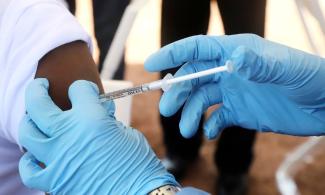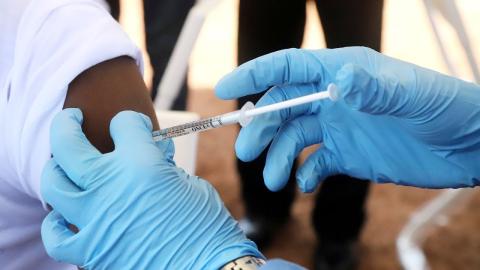
Developed by United States drug maker Merck & Co, the vaccine is already being used under emergency guidelines to try to protect people against the spread of a deadly Ebola outbreak in the Democratic Republic of Congo.

European drugs regulators on Friday approved the world’s first Ebola vaccine, a move, which has been hailed by the World Health Organisation as a “triumph for public health” that would save many lives and ensure people are protected.
Developed by United States drug maker Merck & Co, the vaccine is already being used under emergency guidelines to try to protect people against the spread of a deadly Ebola outbreak in the Democratic Republic of Congo.
According to reports, the vaccine is also being reviewed under a fast-track system by regulators in the United States.
WHO’s Director-General, Tedros Ghebreyesus, in a statement on Thursday, said; “This vaccine has already saved many lives in the current Ebola outbreak, and the decision by European regulator will help it to eventually save many more.”
Over 2,100 people have been killed by Ebola in the Democratic Republic of Congo since the middle of last year.
This is the second largest Ebola outbreak in history, after a 2013-16 epidemic in West Africa that killed more than 11,300.
The Merck vaccine, which the company has now brand-named Ervebo, is likely to get a full marketing licence from the European Commission within a few weeks, Reuters said in a report.
Merck said in a statement its priority now was to get regulatory approval of its Ervebo manufacturing site in Germany so that licensed supply of the vaccine “can be used to support global public health preparedness”.
Health authorities in Kinshasa said last week they planned to introduce an experimental second Ebola vaccine, developed by drug maker Johnson & Johnson in November in the country’s eastern provinces.
Ebola virus causes haemorrhagic fever and spreads from person to person through direct contact with body fluids and it kills around half of those it infects.